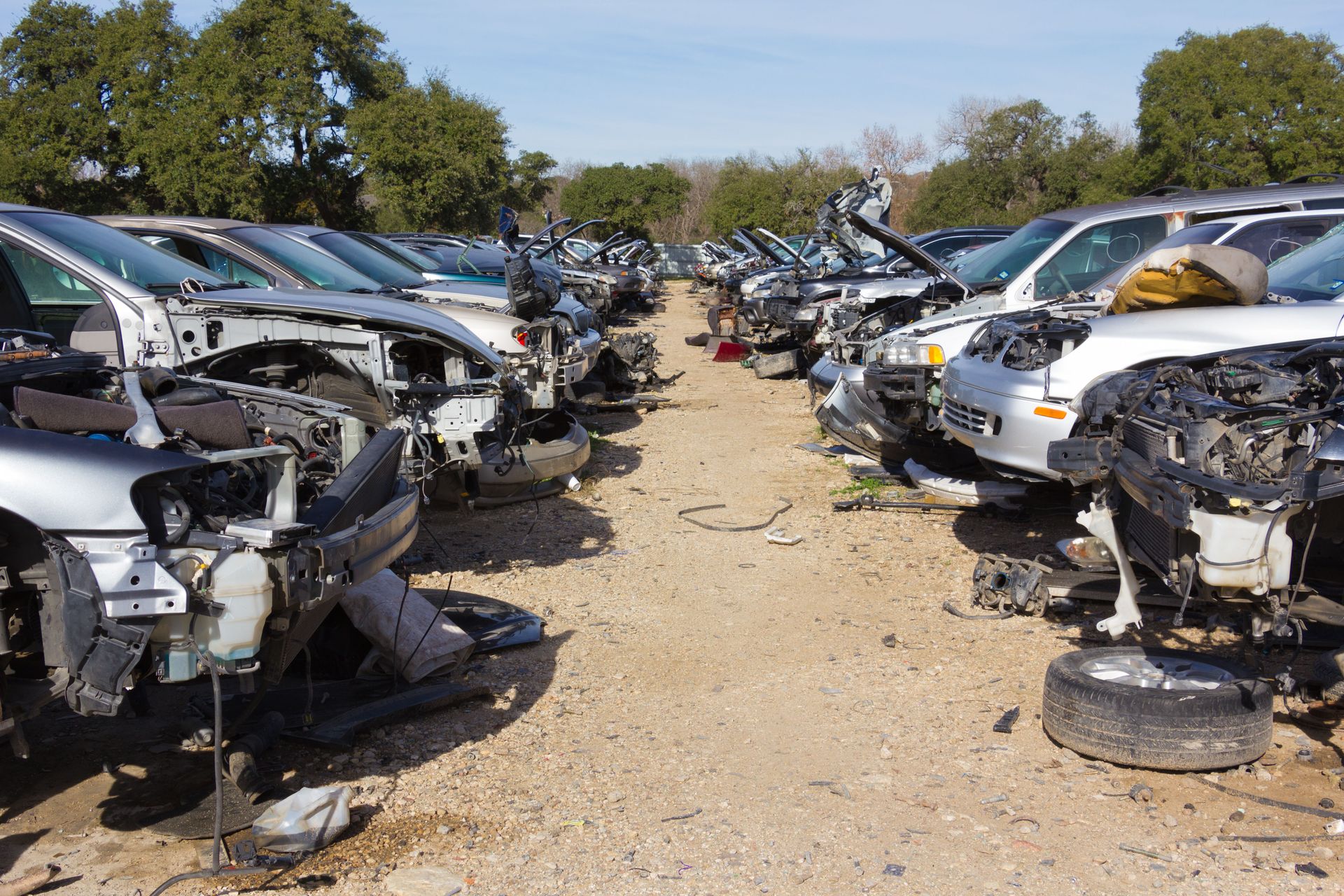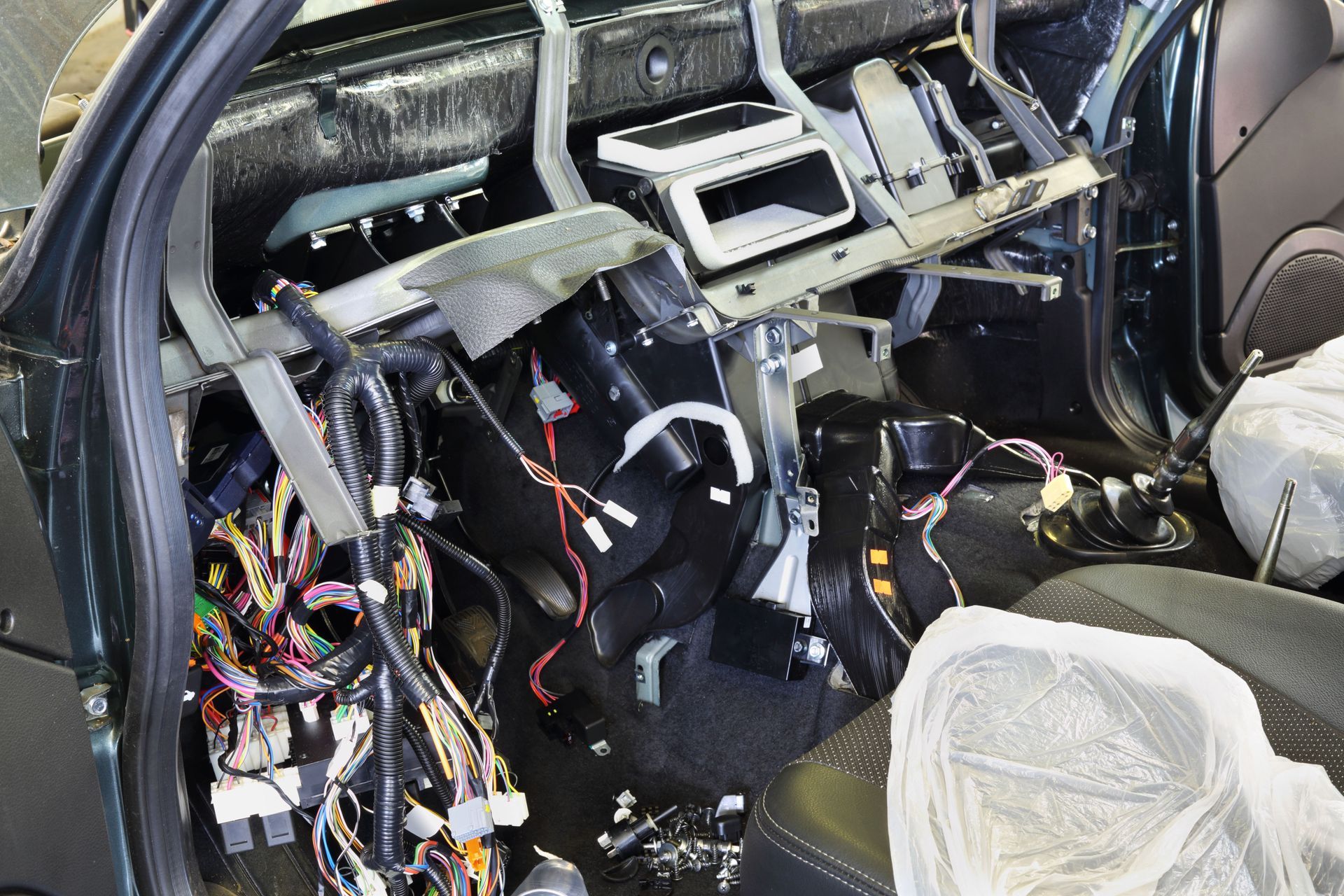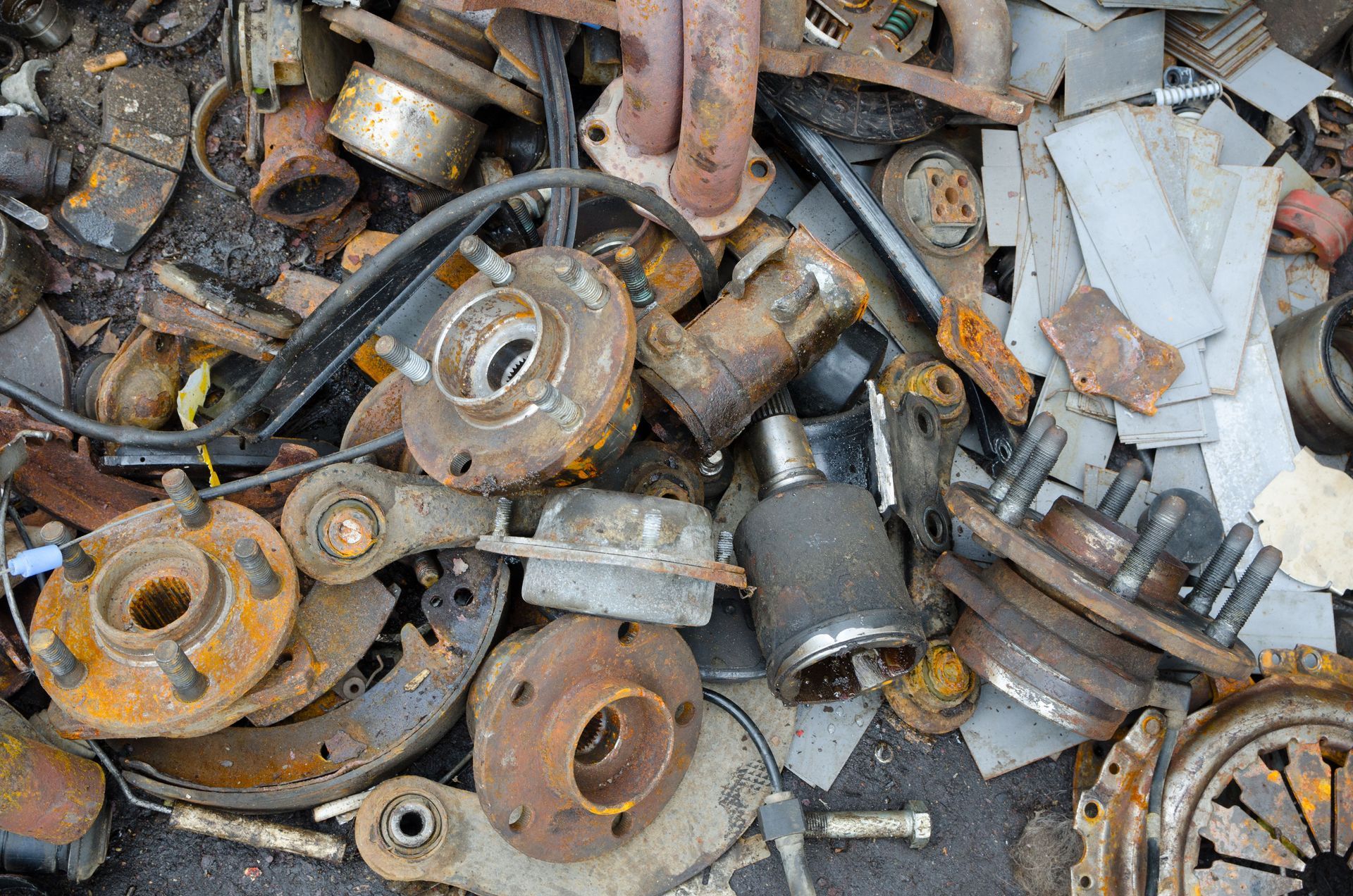6 Ways Auto Recycling Helps the Environment and Your Community
In today’s world, auto recycling stands at the crossroads of environmental stewardship and community development. This sustainable practice goes beyond simply reducing waste; it invigorates local economies, promotes public health, and encourages civic engagement. As industries shift toward environmentally responsible practices, the auto recycling sector emerges as a critical contributor to global sustainability efforts. According to The Zebra, nearly every new car includes around 25% recycled material from older vehicles, highlighting the industry’s growing influence. Understanding the multi-layered benefits of auto recycling is essential for fostering communities that prioritize ecological preservation, economic resilience, and social well-being.
1. Reducing Landfill Waste and Environmental Risk
One of the most tangible advantages of auto recycling is its capacity to reduce landfill waste. Vehicles are composed of various metals, plastics, and hazardous components, which, if left in landfills, occupy significant space and pose environmental risks. By recycling these materials, communities can extend the life cycle of automotive components, effectively minimizing the demand for new landfill sites. This practice not only conserves space but also facilitates better waste management strategies, creating a balance between human activity and natural ecosystems.
A critical aspect of landfill reduction involves mitigating the risks of toxic leakage. Batteries, tires, and automotive fluids contain chemicals that, when improperly discarded, seep into soil and groundwater, contaminating vital resources. Auto recycling ensures these substances are managed safely, preventing potential environmental disasters and protecting public health. Communities that embrace recycling initiatives can prevent these hazards, fostering safer neighborhoods and reducing the long-term costs associated with environmental clean-up.
Minimizing the need for new landfills is another substantial benefit. Without recycling, communities would have to allocate additional land for waste storage, often encroaching upon green spaces or agricultural areas. Auto recycling alleviates this pressure by converting potential waste into reusable resources. By promoting efficient recycling methods, communities can conserve land, reduce environmental degradation, and create a sustainable cycle where discarded vehicles are transformed into valuable materials.
2. Conserving Natural Resources and Energy
Auto recycling plays a vital role in conserving finite natural resources. Metals such as steel and aluminum, along with various plastics, can be continuously recycled without degrading in quality. By reprocessing these materials, the industry reduces reliance on raw material extraction, helping preserve forests, mines, and other natural habitats. The incorporation of recycled materials into nearly every new vehicle, as noted by The Zebra, underscores the importance of these practices in modern automotive production. These efforts not only protect natural resources for future generations but also lower the environmental footprint of manufacturing processes.
In addition to material conservation, auto recycling significantly reduces energy consumption. Extracting, refining, and processing virgin materials is energy-intensive, whereas reusing recycled components requires considerably less energy. This translates to fewer fossil fuels burned and a reduction in greenhouse gas emissions. By conserving energy, communities actively participate in mitigating climate change while promoting economic efficiency. The environmental and financial benefits are mutually reinforcing, highlighting the value of recycling initiatives that emphasize both sustainability and practicality.
Water conservation is another often-overlooked benefit. Producing vehicles with recycled materials generally demands less water than processing new raw resources. This advantage is especially significant in regions experiencing water scarcity, where careful resource management is critical. Through recycling, communities support ecological balance and ensure the sustainable availability of essential resources.
3. Reducing Pollution and Supporting Public Health
The environmental impact of auto recycling extends to pollution reduction across multiple dimensions. Manufacturing new automotive components releases significant amounts of carbon dioxide and other greenhouse gases. By integrating recycled metals, glass, and plastics, the industry reduces these emissions, directly contributing to the fight against global warming. Communities that support auto recycling initiatives help create cleaner, healthier environments, demonstrating a tangible commitment to sustainability.
Air quality improvement is another critical advantage. Traditional manufacturing processes release pollutants that contribute to smog, respiratory illness, and cardiovascular disease. By reusing materials, auto recycling decreases the need for energy-intensive production, thereby reducing harmful emissions. Cleaner air fosters healthier populations and lessens public health expenditures, demonstrating how environmental practices and community well-being are intertwined.
4. Supporting Economic Growth and Local Business
Auto recycling is also a strong driver of economic development. The recycling sector generates diverse employment opportunities, from collection and dismantling to processing and resale of materials. As demand for sustainable practices grows, these jobs provide financial stability while fostering skill development in emerging eco-industries. Local economies benefit as recycling businesses establish operations, purchase equipment, and engage with service providers. Communities with active auto recycling sectors often experience improved employment rates and increased economic resilience.
The industry further stimulates local business growth. Recycling creates a network of facilities that support both small and medium enterprises, contributing to regional economic diversity. Businesses that integrate recycled materials into manufacturing processes can offer cost-competitive products while appealing to environmentally-conscious consumers. This synergy between commerce and sustainability strengthens local markets, encourages innovation, and attracts investment in green initiatives.
5. Enhancing Community Engagement and Education
Auto recycling fosters deeper community engagement by raising awareness and promoting sustainability education. Educational campaigns, workshops, and outreach programs help residents understand the environmental and economic benefits of responsible recycling. Informed communities are more likely to adopt eco-friendly practices, creating a culture of collective responsibility and environmental stewardship.
Community clean-up initiatives further strengthen local engagement. Organized events for collecting scrap vehicles or recycling materials encourage citizens to actively participate in maintaining neighborhoods. These activities enhance social cohesion, instill pride, and reinforce the communal value of sustainable practices. As residents see tangible results from their efforts, they are more likely to support ongoing recycling programs and advocate for environmental policies.
6. Promoting Safe Disposal Practices and Legal Compliance
A central benefit of auto recycling lies in promoting safe disposal of hazardous automotive materials. Batteries, fluids, and other components pose significant risks if mishandled, threatening both environmental and public health. Recycling programs ensure these materials are properly contained and processed, reducing the likelihood of contamination and ecological damage. Communities that prioritize safe disposal practices create healthier, more sustainable living conditions while adhering to environmental regulations.
Auto recycling also helps curb illegal dumping. Without proper disposal options, abandoned vehicles and hazardous materials often find their way into unauthorized areas, causing environmental degradation. Accessible recycling facilities, coupled with public education on legal disposal methods, mitigate these issues. By encouraging compliance with waste management laws, communities preserve natural landscapes, protect public spaces, and maintain ecological integrity.
Auto recycling provides far-reaching benefits, enhancing environmental protection, conserving natural resources, reducing pollution, supporting economic growth, and fostering community engagement. By integrating recycled materials into vehicle manufacturing, communities contribute to a sustainable future while supporting local economies and promoting public health. The industry exemplifies how ecological responsibility can align with financial and social progress, offering a model for sustainable development that benefits everyone.
As society increasingly embraces environmentally-conscious practices, auto recycling stands out as a practical, effective, and impactful solution. Communities that invest in and support these initiatives not only help reduce waste and conserve resources but also strengthen economic resilience and civic engagement. With nearly every new car now containing a significant proportion of recycled material, the importance of this sector continues to grow.
Take action today by supporting local auto recycling and choosing recycled components when possible. Reach out to us at Acres Auto Recycling to learn how you can participate in sustainable automotive practices. Together, we can drive both environmental and community well-being toward a cleaner, healthier, and more prosperous future.





Share On: